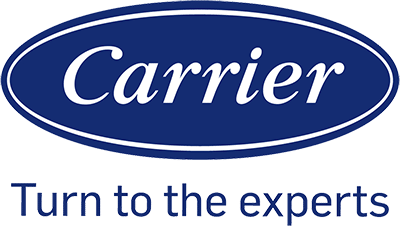Understanding AC System Maintenance

To ensure optimal performance and longevity, we must adhere to a well-defined maintenance regimen for our AC systems.
Significance of Routine Maintenance
Routine maintenance of our AC system serves as preventive healthcare, averting possible breakdowns and optimizing efficiency. Regular check-ups allow us to identify and address minor issues before they escalate into significant problems, helping to extend the life of the air conditioner and maintain its energy efficiency.
- Enhanced Reliability: By committing to regular maintenance, we minimize the chances of untimely breakdowns, particularly during peak season when the HVAC system is under the most stress.
- Energy Efficiency: Keeping the AC system in top shape ensures it consumes only the necessary amount of energy, potentially lowering electricity bills.
- Air Quality: Maintenance tasks also include cleaning and replacing filters, which directly contribute to better indoor air quality.
Essential Maintenance Tasks
Our maintenance tasks checklist is vital for a comprehensive tune-up of the AC system. Professional maintenance usually includes the following:
- Thermostat Calibration: Ensuring our thermostat operates accurately to maintain our desired comfort levels and energy efficiency.
- Electrical Connections and Components: Checking and tightening to prevent safety issues and maintain system longevity.
- Lubrication: Applying lubricant to moving parts to reduce friction and wear, which can otherwise lead to system failures.
- Condensate Drain Inspection: Clearing the drain to prevent water damage and humidity issues.
- System Controls: Testing to confirm safe and proper start-up, operation, and shut-down cycles.
- Evaporator and Condenser Coil Cleaning: Removing dirt and debris that can impair efficiency and shorten the life of the AC system.
- Refrigerant Level: Checking and adjusting to ensure optimal system performance and to prevent coil damage.
- Air Filter Replacement: Installing new filters to maintain airflow and improve air quality.
Maintaining a strict schedule for these tasks—ideally performed by a professional—acts as the crux of our preventive maintenance strategy, assuring that our HVAC system remains in prime condition.
Maximizing Efficiency and Performance

Regular air conditioning check-ups play a crucial role in maintaining the optimal performance and energy efficiency of our AC systems. By ensuring that key components are functioning correctly, we can reduce energy bills and achieve peak efficiency.
Key Components Affecting AC Efficiency
Thermostat: The thermostat is the command center for our AC unit. It must accurately gauge and control the temperature to ensure efficient operation. An inaccurate thermostat can lead to excessive cooling and higher energy expenditures.
Filter: Clean filters are essential for airflow. When our filters are clogged, our AC unit has to work harder, which decreases efficiency and can elevate energy costs.
Coils: The evaporator and condenser coils are integral to the cooling process. Over time, these coils can accumulate dirt, reducing their ability to absorb and release heat, respectively. Maintaining clean coils is essential for maintaining improved energy efficiency.
Condenser Coils: Specifically, the condenser coils release collected heat outside our home. If these coils are dirty or obstructed, the system runs longer and increases energy bills.
By focusing on these components during regular check-ups, we ensure our air conditioning systems run at their best, delivering optimal performance and energy efficiency.
Avoiding Common AC Problems
In prioritizing the health of our AC systems, we can prevent many common problems which, if left unchecked, could lead to costly repairs or even complete breakdowns.
Detecting and Preventing AC Issues
Detecting potential issues early can save us from the inconvenience and expense of major repairs. By being vigilant, we can address problems before they escalate. For example, keeping an ear out for unusual noises such as banging, clanking, or hissing can indicate mechanical problems or leaks. Regular inspections can also reveal obstructions in the system or wear and tear that would otherwise go unnoticed.
To keep our AC units functioning optimally, we must monitor refrigerant levels to ensure efficient operation. Low refrigerant levels may lead to a lack of cooling power and can signal a leak in the system. Checking electrical connections is another critical preventative measure. Loose connections can hinder the performance of the air conditioning unit and pose a potential fire hazard.
Ensuring that the condensate drain is clear is also essential. A clogged condensate drain can cause water damage and increase the humidity levels in our space. Regular cleaning prevents these obstructions and allows the unit to dispose of the condensation effectively.
Overall, our commitment to regular check-ups and maintenance can sidestep many common issues that lead to expensive repairs or the need for repairs or replacements. This approach helps to prolong the lifespan of the AC unit, keeping it running efficiently for years to come.
Financial Benefits of AC Tune-Ups
Regular air conditioning tune-ups stand as a wise investment for homeowners. By staying on top of AC maintenance, we not only prolong the lifespan of our systems but also realize significant cost savings.
Reducing Energy Costs
Proactive Maintenance: Regularly servicing our air conditioning units allows us to maintain their efficiency. An efficient AC uses less energy, which directly translates to lower energy bills. For instance, replacing a clogged air filter can lessen an AC unit’s energy consumption by 5% to 15%.
Cost Savings Over Time: Regular tune-ups prevent minor issues from developing into major ones that are costly to fix. Over time, these savings add up, proving that the initial investment in tune-ups is recouped through the lower overall cost of operation and maintenance.
Utility Bill Analysis: By analyzing our utility bills before and after AC tune-ups, we often observe a reduction in energy usage. This is a clear indicator of the financial benefits that come from keeping our air conditioning system in peak working condition.
Enhancing Air Quality and Safety

When we prioritize regular air conditioning check-ups, we significantly enhance the indoor air quality and safety of our living and working spaces.
Improving Indoor Air Health
Indoor air quality is critical for ensuring a healthy environment. Dirty air filters and inadequate ventilation can trap dust, debris, and mildew, negatively impacting our respiratory health. Through routine check-ups, we replace or clean air filters to maintain clean airflow. Moreover, these inspections verify that the ventilation systems are functioning properly, preventing the build-up of pollutants inside our homes and offices.
- Key steps in improving indoor air health include:
- Regular replacement or cleaning of air filters.
- Checking and cleaning of ducts to remove dust and debris.
- Ensuring proper function of ventilation systems.
Ensuring Safety and Avoiding Hazards
Safety is a paramount concern that we address during air conditioning check-ups. We vigilantly inspect for signs of wear and tear that could lead to electrical hazards or a rise in temperature during operation. Additionally, we check the air conditioning system for issues that might result in a dangerous flame or poor combustion processes, which can lead to the emission of carbon monoxide, a colorless and odorless gas that poses serious health risks if inhaled.
- Preventive measures to ensure safety include:
- Inspection of electrical connections to avert potential fire hazards.
- Assessment of the heating components to prevent abnormal temperature rise.
- Testing of carbon monoxide detectors and verification of their functionality.
Frequently Asked Questions
What are the benefits of routine air conditioning maintenance?
Routine AC maintenance ensures that your system runs effectively and reliably. We can identify small issues before they escalate into major problems, which extends the lifespan of your air conditioning unit.
How often should HVAC systems undergo professional check-ups?
We recommend professional HVAC check-ups at least once a year. However, if your system runs year-round or has additional workload demands, you might need semi-annual maintenance.
What can happen if I neglect regular AC system maintenance?
Neglecting regular maintenance can lead to a decrease in performance, more frequent breakdowns, and higher repair costs. It can also shorten the overall life expectancy of your AC unit.
How does regular maintenance impact the efficiency of an air conditioning unit?
Regular maintenance keeps air conditioning units running at peak efficiency. Clean filters and coils, along with calibrated controls, ensure that your system doesn’t have to work harder than necessary to cool your space.
Can regular AC check-ups help in reducing energy costs?
Yes, regular AC check-ups can lead to lower energy costs. A well-maintained AC unit operates more efficiently and consumes less energy, which can result in significant savings on your energy bills.
What do professional HVAC technicians look for during a standard inspection?
During a standard inspection, we check the refrigerant levels, test the system’s electrical components, assess air flow through the evaporator coil, inspect the condenser, evaluate the accuracy of the thermostat, and ensure that all moving parts are well lubricated.




